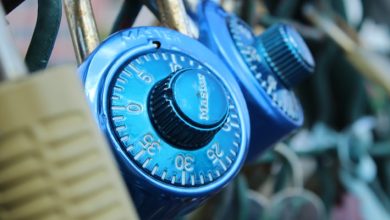Tips for Educating Others About Private Key Security

- Understanding the importance of private key security
- Common misconceptions about private keys
- How to securely store and manage private keys
- Explaining the risks of sharing private keys
- Best practices for educating others on private key security
- Tools and resources for teaching private key security
Understanding the importance of private key security
Protecting your private key is crucial for ensuring the security of your digital assets. Your private key is essentially the key to your digital lock, allowing you to access and manage your cryptocurrencies, digital identities, and other sensitive information. Without proper security measures in place, your private key could be compromised, leading to potential theft or unauthorized access to your accounts.
One of the most important aspects of private key security is keeping your private key confidential. Avoid sharing your private key with anyone, including friends, family members, or even trusted individuals. Additionally, be cautious of phishing scams and fraudulent websites that may attempt to steal your private key. It’s essential to only enter your private key on secure and trusted websites.
Furthermore, consider storing your private key offline in a secure location, such as a hardware wallet or a paper wallet. By keeping your private key offline, you can minimize the risk of it being hacked or stolen by cybercriminals. Remember to make backups of your private key and store them in separate, secure locations to avoid losing access to your digital assets in case of theft or loss.
Common misconceptions about private keys
There are several common misconceptions about private keys that can put individuals at risk of losing access to their digital assets. One of the most prevalent misconceptions is that private keys are stored on the blockchain. In reality, private keys are kept offline and are only used to sign transactions. Another misconception is that private keys are interchangeable with passwords. Private keys are cryptographic keys that are used to access and control digital assets, while passwords are used to access online accounts.
Some people believe that private keys are easy to remember, leading them to store them in insecure locations such as email accounts or on their computer. It is crucial to emphasize the importance of storing private keys securely, such as using hardware wallets or encrypted USB drives. Additionally, there is a misconception that private keys can be shared with others for safekeeping. Private keys should never be shared with anyone, as this can compromise the security of the digital assets associated with the key.
Overall, educating others about the importance of private key security can help prevent the loss or theft of digital assets. By dispelling common misconceptions and promoting best practices for storing and protecting private keys, individuals can safeguard their investments and maintain control over their digital assets.
How to securely store and manage private keys
To securely store and manage private keys, it is essential to follow best practices to prevent unauthorized access. One effective method is to use a hardware wallet, which is a physical device that securely stores private keys offline. This reduces the risk of theft or hacking compared to storing keys on a computer or mobile device. Additionally, encrypting private keys with a strong password adds an extra layer of security.
Another important aspect of private key security is to regularly back up keys in multiple secure locations. This ensures that keys can be recovered in case of loss or damage to the original storage device. It is recommended to use encrypted USB drives or paper wallets stored in a safe deposit box as backup options. Furthermore, keeping private keys confidential and not sharing them with anyone is crucial to prevent unauthorized access to digital assets.
In addition to physical security measures, it is important to keep software up to date to protect against vulnerabilities that could compromise private keys. Using reputable antivirus software and enabling two-factor authentication on accounts that use private keys can help prevent unauthorized access. Educating others about the importance of private key security and the potential risks associated with improper key management is essential to promote responsible practices in the digital asset space.
Explaining the risks of sharing private keys
Sharing private keys can expose you to significant risks that could compromise the security of your digital assets. When you share your private key with someone else, you are essentially granting them access to your cryptocurrency holdings, making it easier for them to steal your funds. Additionally, sharing private keys can also make you vulnerable to phishing attacks, where malicious actors trick you into revealing sensitive information by posing as a trustworthy entity.
Moreover, sharing private keys can also lead to unauthorized transactions being made without your consent. Once someone else has access to your private key, they can easily transfer your digital assets to their own wallet, leaving you powerless to recover them. This can result in financial losses and damage to your reputation in the digital currency community.
It is crucial to educate others about the importance of keeping their private keys secure and not sharing them with anyone under any circumstances. By emphasizing the risks involved in sharing private keys, you can help prevent individuals from falling victim to scams and frauds that target unsuspecting cryptocurrency users. Remember, your private key is the key to your digital wealth – guard it carefully and never share it with anyone.
Best practices for educating others on private key security
Educating others about private key security is crucial in today’s digital age where cyber threats are becoming more prevalent. When it comes to best practices for educating others on this topic, there are a few key points to keep in mind.
Firstly, it’s important to emphasize the importance of keeping private keys secure at all times. Private keys are essentially the keys to your digital assets, and if they fall into the wrong hands, it can lead to disastrous consequences. Encouraging others to store their private keys in a secure location, such as a hardware wallet or encrypted USB drive, is essential.
Secondly, educating others on the importance of not sharing their private keys with anyone is paramount. Private keys should be kept confidential at all times, and individuals should be wary of phishing attempts or scams that may try to trick them into revealing their private keys.
Additionally, teaching others about the importance of regularly backing up their private keys is crucial. In the event of a hardware failure or loss, having a backup of the private key can prevent permanent loss of access to digital assets.
Furthermore, educating others on the use of multi-signature wallets can add an extra layer of security to their private key management. Multi-signature wallets require multiple private keys to authorize transactions, making it more difficult for malicious actors to gain access to digital assets.
In conclusion, by following these best practices and educating others on the importance of private key security, individuals can better protect their digital assets from potential threats. It’s essential to stay vigilant and proactive when it comes to private key security in order to safeguard valuable assets in the digital world.
Tools and resources for teaching private key security
When it comes to educating others about private key security, it’s important to have the right tools and resources at your disposal. Here are some key resources that can help you teach others about the importance of protecting their private keys:
- 1. Online tutorials and courses: There are many online tutorials and courses available that cover the basics of private key security. These resources can be a great starting point for individuals who are new to the concept.
- 2. Educational videos: Videos can be a powerful tool for teaching complex concepts like private key security. Look for videos that explain the importance of private keys in a clear and concise manner.
- 3. Infographics and visual aids: Visual aids can help make abstract concepts like private key security easier to understand. Look for infographics and other visual resources that you can use to supplement your teaching.
- 4. Real-world examples: Using real-world examples can help illustrate the importance of private key security in a concrete way. Look for case studies and examples of security breaches that resulted from poor private key management.
- 5. Hands-on exercises: Hands-on exercises can help reinforce the concepts you are teaching. Consider creating exercises that allow individuals to practice generating and storing private keys securely.
By using these tools and resources effectively, you can help educate others about the importance of private key security and empower them to protect their sensitive information online.



